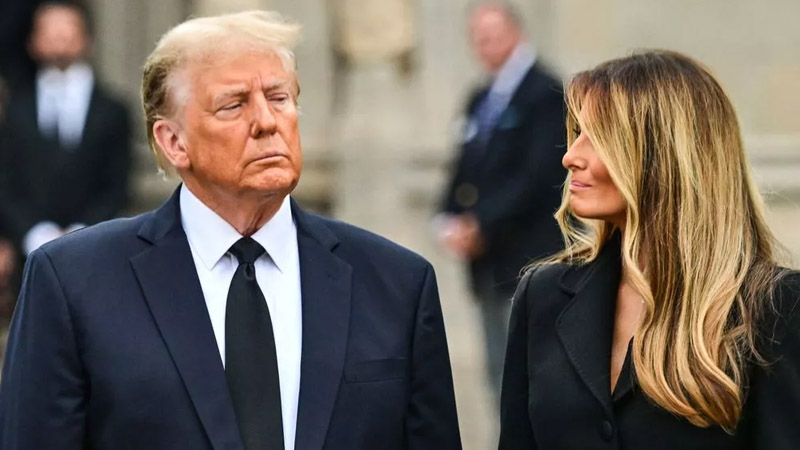The group of elected officials who accompanied former President Donald Trump to his criminal hush money trial on Monday only emphasized the absence of someone crucial to his defense, according to a former aide.
Sarah Matthews, a former Trump White House deputy press secretary, expressed this view during her appearance on CNN’s “The Situation Room” Monday evening, following a day in Manhattan criminal court where Trump was seen with Sen. J.D. Vance (R-OH) and Sen. Tommy Tuberville (R-AL).
Melania Trump has notably not attended her husband’s historic hush money criminal trial since it began approximately four weeks ago. Matthews suggested that her absence could negatively impact Trump’s standing with the jury.
“We had some us senators today show up and be by his side,” Matthews said. “But the most important person who could show up and be by his side is his wife. And so I think that the jury is definitely taking notice of that.”
Trump has claimed that he wanted to prevent adult film star Stormy Daniels from publicizing her account of an alleged affair, which he denies, to shield his family from the scandal. However, Manhattan District Attorney Alvin Bragg argues that Trump falsified business records to conceal payments made to Daniels in the lead-up to the 2016 presidential election, which he was uncertain of winning.
Matthews highlighted the prosecution’s position that Trump’s primary concern was his campaign, not his family. This was supported by testimony from Michael Cohen, Trump’s former fixer, who stated that Trump was focused on protecting his campaign, especially after the fallout from the infamous “Access Hollywood” tape.
“He wasn’t thinking about Melania,” said Cohen. “This was all about the campaign.” Cohen testified that Trump personally approved payments to Daniels and also orchestrated a $150,000 payment to American Media Inc. (AMI), the parent company of The National Enquirer, to silence former Playboy playmate Karen McDougal, who claimed to have had a year-long affair with Trump.
Cohen had secretly recorded a conversation with Trump, during which Trump asked, “So what do we get to pay for this? One-fifty?” This testimony, combined with the absence of Melania Trump, underscores the complexities and challenges facing Trump’s defense.
The prosecution’s narrative suggests that the payments were made to protect Trump’s political ambitions rather than his family, which could influence the jury’s perception of his motives and actions. As the trial progresses, the implications of these revelations continue to unfold, casting a spotlight on the legal and personal battles faced by the former president.


